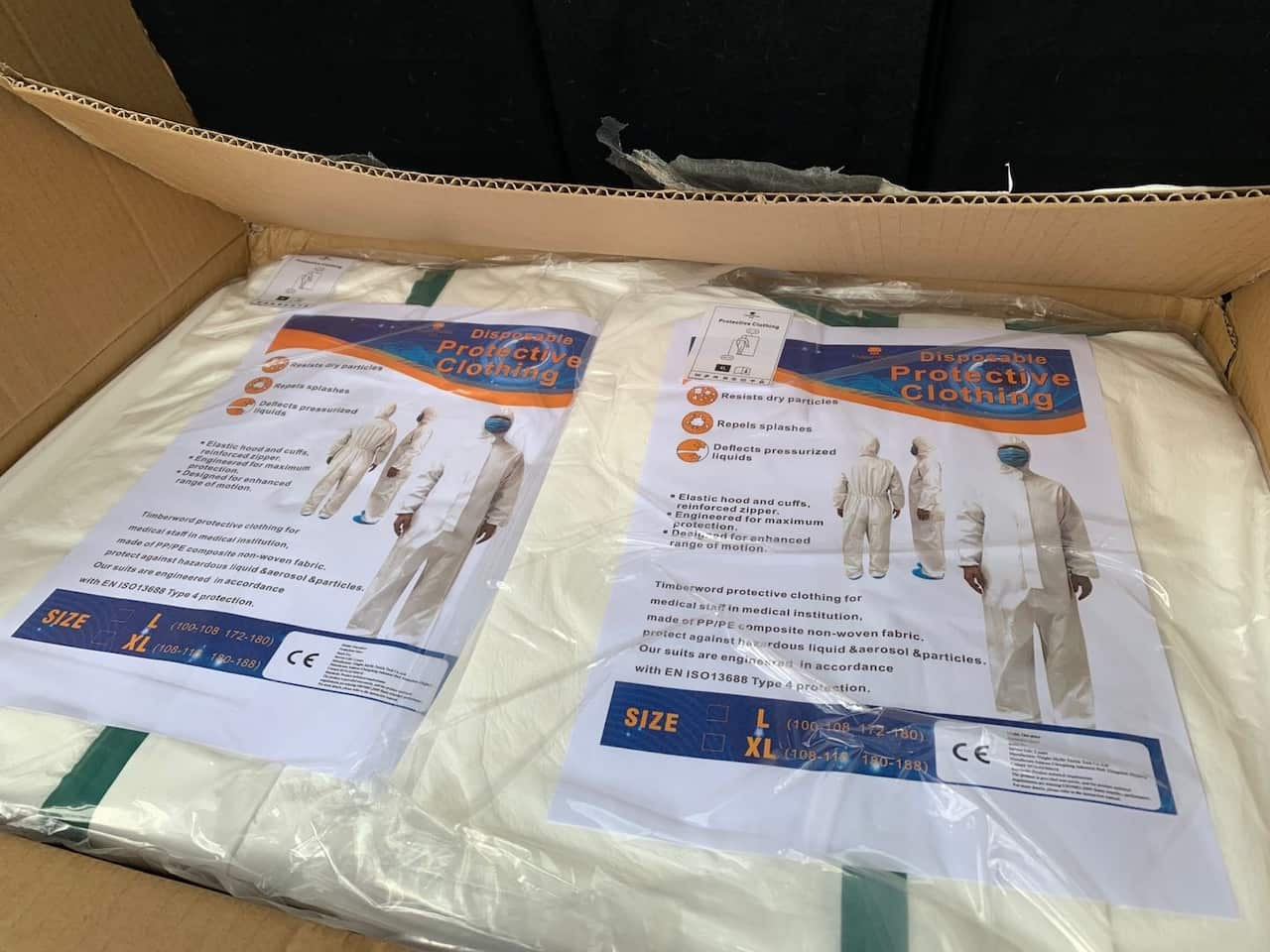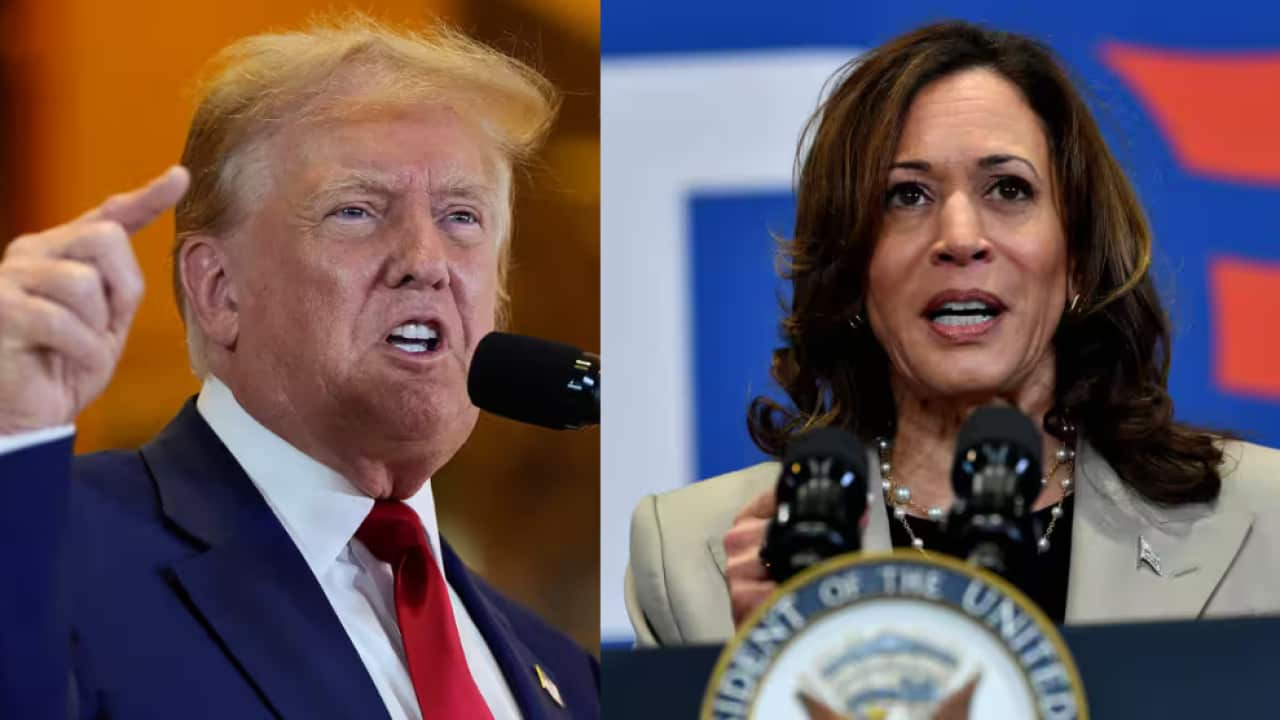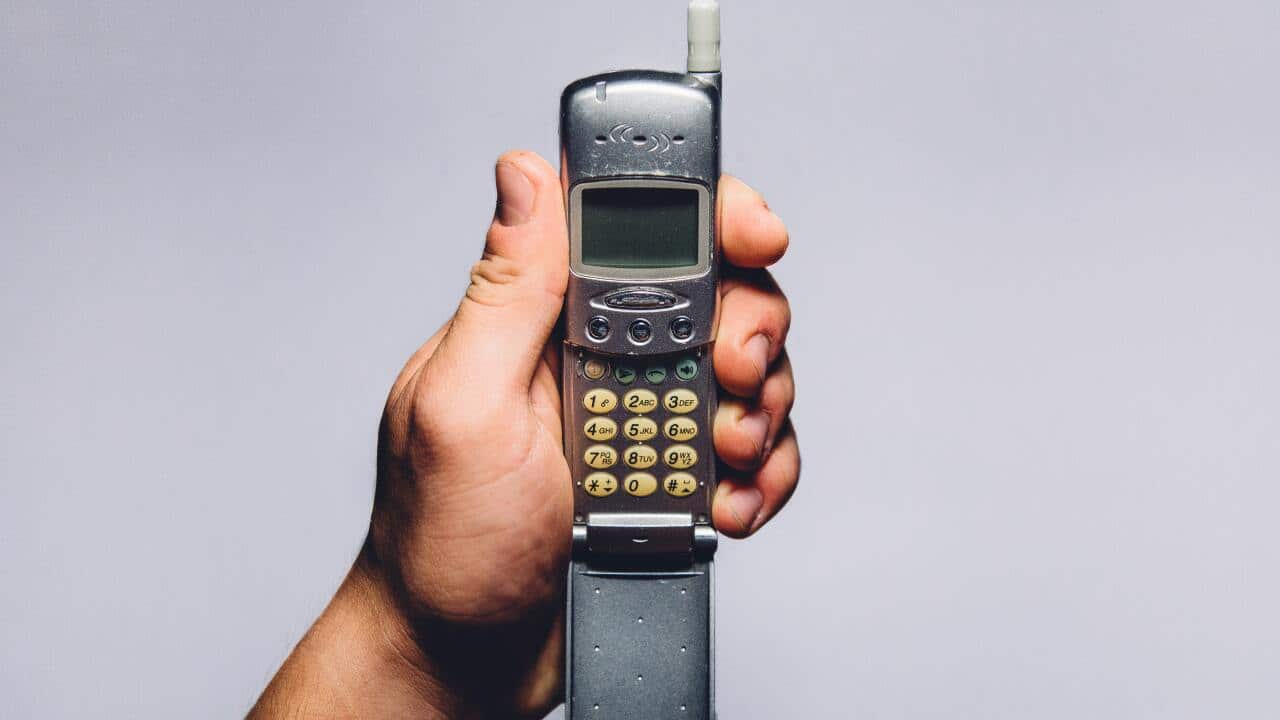Sydney man Fred Yue is the person behind the initiative. In late March, he and a group of his close friends decided to start importing essential personal protective equipment, such as face masks, to Australia amid the shortage.
Within ten days, they collected 1000 masks and donated them to two Sydney hospitals, one clinic, and two nursing homes, as well as a nursing home in Melbourne.
A further 250 masks were donated to the San Hospital on Sydney’s North Shore by a private donor, along with a card addressed to hospital staff. Mr Yue tells SBS Mandarin that management staff at the hospital were "very touched" by the gesture and the card was read to the medical staff the following day.
Mr Yue tells SBS Mandarin that management staff at the hospital were "very touched" by the gesture and the card was read to the medical staff the following day.

The card sent with masks to the Sydney hospital. Source: Supplied
The efforts have snowballed in April, with more than 100 community members participating in the donation drive of medical supplies and funds.
He says he was inspired to start the initiative after seeing a Sydney nurse wearing a home-made face mask.
"That's really not safe for the healthcare workers. Seeing this situation, we feel that we should be able to do a little more," he says.
"The government is acting in its way. Our work for the community can be used as a useful supplement to the work of the government." Mr Yue, who immigrated to Australia as a skilled worker in 2006, says the goal of many of the community members taking part is to assist the wider community during this difficult time.
Mr Yue, who immigrated to Australia as a skilled worker in 2006, says the goal of many of the community members taking part is to assist the wider community during this difficult time.

Fred Yue Source: Supplied
“This is the first time [such has virus has appeared]. I hadn’t expected it to be so serious at first,” the small business owner says.
“My friends and I have been studying, working and living in Australia for years, even decades. This is our home, and we are certainly willing to do what we can as members of the community. "
Of his four friends, two are IT engineers, one is a government official and the other is a biologist.

A box of donated personal protective equipment being opened by a health worker. Source: Supplied
Quality control
With most of the group’s equipment being imported from China – one of the world’s leading supplier of protective equipment – Mr Yue says it's vital to ensure that the items meet Australian standards.
It comes after the Australian Border Force seized Chinese-made faulty face masks and other protective clothing imported into the country in March.
It followed a similar case in the Netherlands when authorities recalled 600,000 face masks from China due to low quality. Beijing then imposed mandatory customs inspections on exports of masks and other personal protective equipment (PPE). To ensure that the masks being imported by the team are of the highest quality, Mr Yue says there are more than ten Sydney medical professionals who assist in communicating with the suppliers in advance of the imports to ensure they are of the highest quality.
To ensure that the masks being imported by the team are of the highest quality, Mr Yue says there are more than ten Sydney medical professionals who assist in communicating with the suppliers in advance of the imports to ensure they are of the highest quality.

donation by Fred Source: Supplied
After the equipment arrives, the donors check the quality, and the hospital that receives the donated items will also conduct the final quality examination.
Following on from their first donation, the team is now eagerly awaiting more supplies, including 1000 KN95 masks, 740 goggles, and 120 face masks that are currently in transition in Singapore.
People in Australia must stay at least 1.5 metres away from others and gatherings are limited to two people unless you are with your family or household.
If you believe you may have contracted the virus, call your doctor (don’t visit) or contact the national Coronavirus Health Information Hotline on 1800 020 080.
If you are struggling to breathe or experiencing a medical emergency, call 000.
SBS is committed to informing Australia’s diverse communities about the latest COVID-19 developments. News and information is available in 63 languages at




